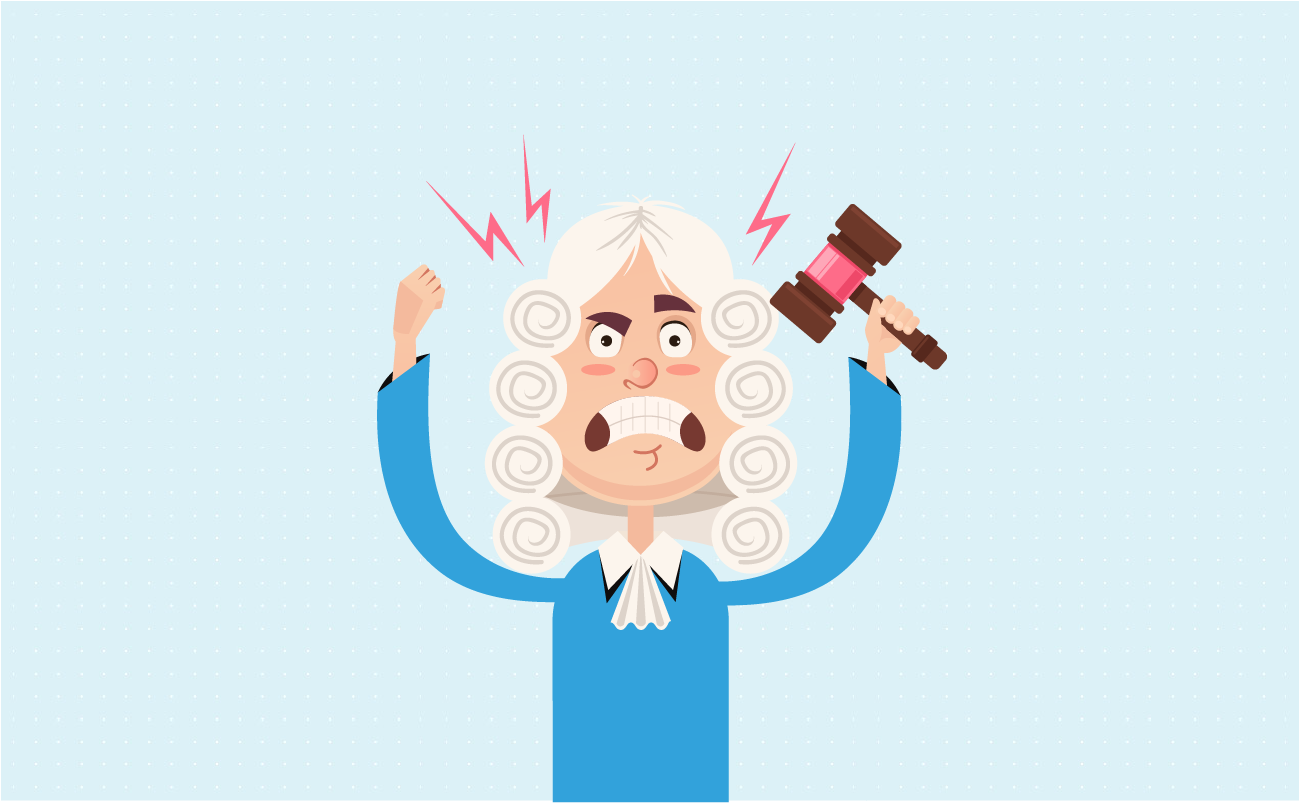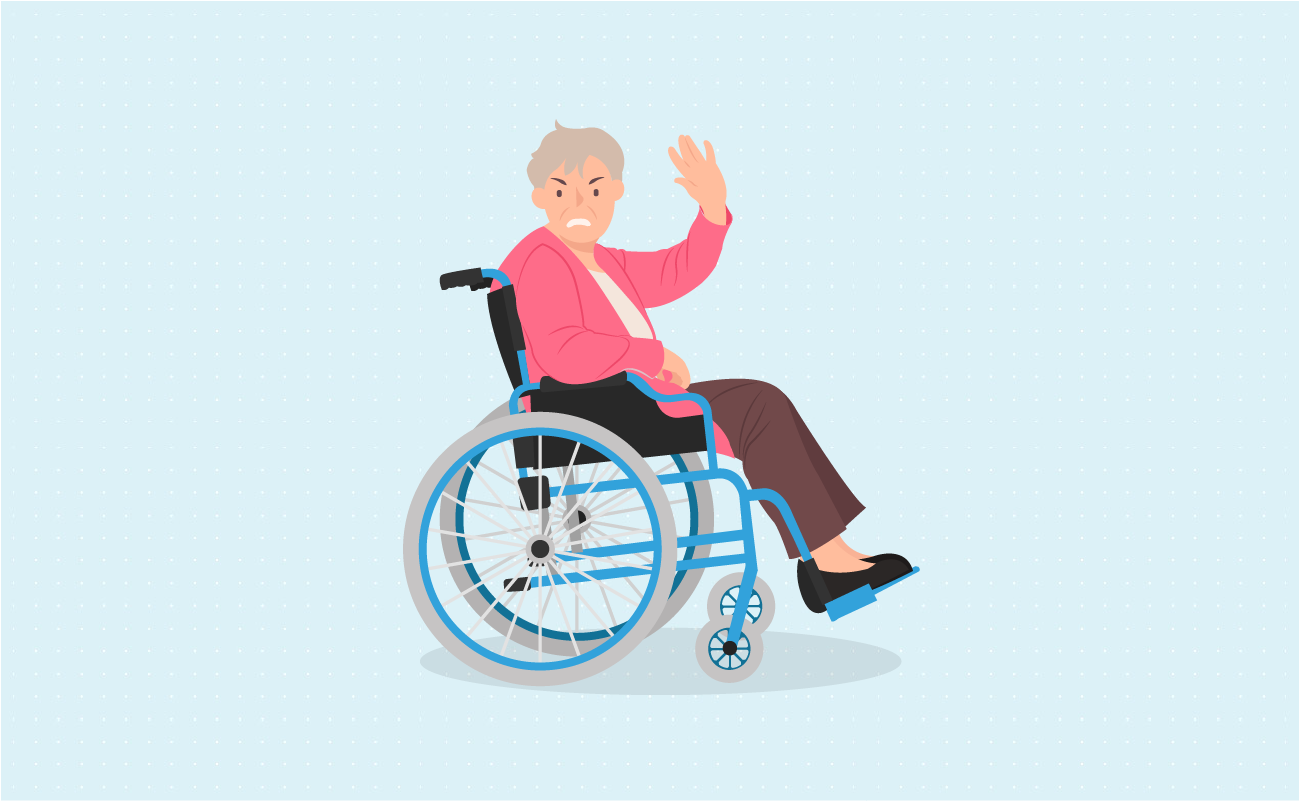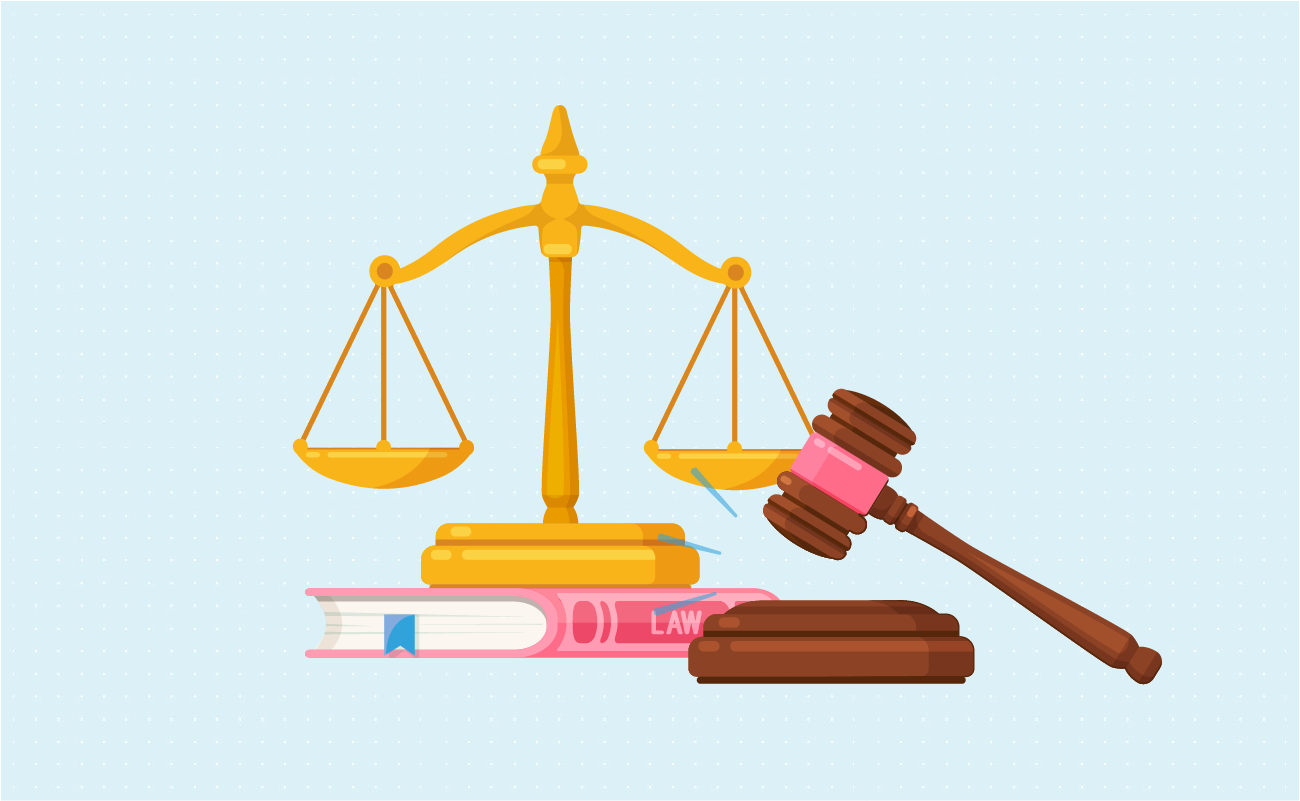 Post Judgment Interest Calculator
Post Judgment Interest CalculatorThis calculator will help you to estimate the interest earned on a court awarded judgment.
Guide published by Jose Abuyuan on February 24, 2020

One of the odd quirks of American culture is the perceived frivolity of its civil cases. In the eyes of (usually American) pop culture, people in the U.S. will take you to court over the most trivial of slights. Could it be that people are just too litigious for their own good?
Not likely. Truly cartoonish suits are rare. The expenses tied to legal representation discourage civil lawsuits for minor slights. No one in their right minds will pursue legal action over a burger missing a condiment. Most parties involved in civil cases settle out of court for this reason.
The expenses of legal action mean that only dire cases are actionable in practice. You'd better have a good reason to fight an uphill, costly battle. Often, lawsuits are a last resort. The payouts involved often reflect this. Suing someone for money is not an easy task. And neither is getting your due a laughing matter.
Have you received profound harm from a person or business? Did your injuries cost you thousands in hospital bills and lost income? Have their negligent or corrupt actions harmed anyone else? These grave reasons are what makes lawsuits worth pursuing. Legal compensation is meant to cover the damages caused to the plaintiff and the costs of the case. Cases that drag on for long often have damages in the millions for this reason.
Injury suits, so maligned in the public consciousness, reflect a painful reality. Negligence will cause people to lose their incomes or come to grievous harm. Corrupt and unscrupulous businesses will refuse to help these people unless forced.
Moreover, their carelessness would go unabated if not forced otherwise. Litigation is often the only recourse that a group of individuals have over large corporations that refuse to clean up their act.

Many of the famous big-payout civil cases are directed toward multimillion-dollar companies. The famous case against McDonald's in 1994 was far from frivolous. The plaintiff, the elderly Stella Liebeck, almost died from the burns caused by near-boiling coffee she spilled on herself. The matter escalated when McDonald's refused to change the temperature of the coffee. They also denied her a reasonable $20,000 compensation for her medical bills. Notably, she was one of more than 700 complaints on the scalding hot coffee.
The courts ruled that the corporation had been negligent for serving coffee that hot. For this infraction, they judged that McDonald's owed Ms. Liebeck more than $2 million. She settled with the company for less than $600,000. The company changed their coffee's serving temperature not long after.
This example had been so warped in the public consciousness that few people know the facts behind it. Most people remember that an old lady spilled her coffee, not that the coffee could have burned anyone who touched it. It is often dismissed as trivial only because people didn't know any better.
Many larger corporations faced responsibility for their actions only because of lawsuits. One modern example is the recall of the carcinogenic pesticide Roundup. The case forced manufacturer Bayer to pay more than $86 million in damages.
And these multimillion-dollar suits are just the tip of the iceberg. Depending on their gravity, the cases can hit the billions:
Despite the size of these cases, they are often a slap in the wrist compared to the trillions of dollars in damage they caused. Oil spills and financial fraud affect millions of people.
Of course, these big-time lawsuits are associated with major corporations. Most civil cases don't have as much at stake and are subsequently less dramatic. Small claims courts will usually pass judgments in the thousands of dollars.
Although nowhere near as bad, the damages incurred by defendants are usually still punitive. The defendants are required to pay for damages plus the legal fees and other costs of the plaintiff. These expenses, plus interest, inflate the cost of litigation. People are often motivated to avoid legal cases as much as possible.
Civil cases are long, drawn out, expensive affairs. They're nowhere near as cut and clean as the legal dramas make them out to be. The time it takes to prepare for the trial can take up to a year.
This system is designed to keep both parties honest and reach a fair decision on their own. Often, the two parties may decide to hold mediation and arbitration meetings. This could go on for up to eight months. At any time, the parties may choose to settle. Because of this, most civil cases are never filed, let alone reach trial.

Often, defendants find it better to settle cases out of court to avoid the costs of litigation. Ask your lawyers for the details of your case during arbitration. If you have a strong case, you will be negotiating from a position of strength. Follow your legal counsel's cues to help you gain the best outcome during this process.
If all negotiations for arbitration fail, the two parties can meet in court. The trial itself can be short, at just a few hours long. At times, it can go on for several weeks.

The following table outlines the median costs of several types of civil case. Data is drawn from the 2013 article Measuring the Costs of Civil Litigation: Findings From a Survey of Trial Lawyers by Paula Hannaford-Agor.
| Litigation Type | Costs |
|---|---|
| Professional Malpractice | $122,140.00 |
| Contract | $90,575.00 |
| Employment | $87,515.00 |
| Real Property | $66,365.00 |
| Premise Liability | $53,976.00 |
| Auto Collisions | $43,238.00 |
Budget cuts in court systems across the country have further slowed these cases. There aren't enough judges and other legal staff to oversee these cases. In the past decade, the cost of litigation has only grown higher. These challenges within the system contribute to the length of time that civil cases take. You should have a serious grievance to even think that a case is worth pursuing in court.
Necessity may force you to take matters to court. During an arduous legal battle, you might neglect to examine what you stand to gain or lose. Besides the amount ruled by the courts, the winning party can also receive pre-judgment interest. If the case works in your favor, you could receive a much higher compensation.
Calculating the interest on your judgment is a challenge. Not every court handles each case the same way. Federal law chooses a rate that favors paying back the plaintiff's damages. Some state laws enact a flat rate, while others float it based on prevailing market rates. Our calculators can help you measure how much to expect to gain from pursuing a court case.
The level of harm involved is also the main motivator for most civil cases. After all, a major injury is not going to come cheap. You would face not only mounting medical bills but lost wages. And if the defendant continues its behavior, it'll be a matter of time before someone else comes to harm. Acting on the lawsuit is often the only way to get your due and set an example.
Even the threat of suing could put you in a position to gain some recompense. Be careful, however. Sometimes, what you gain from the settlement can be less than what you gain in court. Consult your attorney for the best course of action you can take.

Honesty is the best policy for injuries claims. The court will not look favorably on a case where you exaggerate your injuries. Fake personal injury claims are criminal cases!
Interest is allowed on most judgments in both state and federal courts. The period where debtors would owe interest is determined by the number of years before the judgment was passed. Most courts use the following formula to determine the final award you would receive upon winning a case:
Final judgment = Original judgment × Multiplier
The multiplier itself is computed as follows:
Multiplier = [1 + (rm /n)]nT
Where:
Depending on how long the case had gone, the interest awarded could be even bigger than the original judgment. The interest can also be steep due to other factors like rates and principal. Even if the case moved quickly, a defendant can be saddled with a steep judgment bill.

Winning the case is only the first step toward getting your due. You might be in for another challenge. Especially when it comes to small claims, collecting your judgment is not always easy.
Most of the time, you can expect the debtors to pay on the dot. The actions you can take to collect are often far more trouble for them than what they expect to gain. Judges also rule that the defendants pay in increments during the judgment period.
If you have two or more debtors, any amount you collect from both is deducted from their mutual judgment. You can take a larger share from one debtor over the other. If one party takes umbrage, they might sue the other for the difference.
A few ways you can ensure payments include wage garnishments, property liens, and bank levies. If you believe that your debtor is avoiding payment, seek advice from your legal counsel.
It pays to be prepared before you act. You'll need to expect their moves to get your due even in the face of anything that might delay or deny the judgment due. Like with the suit, you and your legal team have your work cut out for you.
The first thing you need to do is wait out the period of appeal. Many states give the defendants a right to appeal their case after the judgment is passed. Only after this period is over can you collect. Do not bother the losing party at this point; any action taken against them could spur them to make an appeal. They have no obligation to pay you anything while the appeal is pending.
The debtor might also try to circumvent your ability to collect. They might attempt to file for bankruptcy. If they succeed, you can't collect anything until their other debts are settled. To ensure that you get your fair share, you must receive a lien right to their real estate assets. Perfecting a real estate lien is required by most states. To do this, you must record the judgment with the recorder's office in the county where your debtor's property is located.
Everyone has bills to pay, and the courts understand this. There are some assets that can never be seized due to their necessity for everyday survival. What you can do, however, is identify assets that you can seize. Courts can hold a discovery to help you identify your debtor's monetary assets. A discovery can include the following actions:
Once you've identified assets, you can retrieve your money. There are many ways for you to receive your due. Some of the easiest include garnishing wages and collecting the funds in non-essential bank accounts. These should be the first things you should go after. It might be harder to force the sale of an expensive asset like a home, business, or vehicle. Seizing business assets (cash registers, equipment, etc.) might be an option if your debtors are businesses. To do this safely, always rely on a sheriff or other law enforcement officers to carry out the order.
If this proves too difficult, you can seek the services of a professional debt collector. Courts give these services a great deal of power to settle the debts on your behalf. Fortunately, it rarely comes to this. People are wary of debt collectors and will avoid letting things escalate to that point.
You must act fast; court judgments expire after a set period. Be aware of your time frame and renew your judgement as necessary. Always consider the need for the long game. You might not be able to collect today, but you can sometimes expect that your debtors would have more cash in the future. Do not be discouraged by piecemeal claims. Any amount you get is often better than nothing.
Once your debtors have paid off their dues, close the case by filing a satisfaction of judgment. This clears the case off the books and clears out any remaining liens on the debtor's property.
Much like any business decision, carefully consider the costs and projected benefits of taking a case to court. Sometimes, another round of negotiations might be better for both parties. In other instances, your defendant may not have the ability to pay at all. The expenses of a suit are no laughing matter, and there's no point in suing when you can't collect. Choose your legal battles wisely.
Jose Abuyuan is a web content writer, fictionist, and digital artist hailing from Las Piñas City. He is a graduate of Communication and Media Studies at San Beda College Alabang, who took his internship in the weekly news magazine the Philippines Graphic. He has authored works professionally for over a decade.